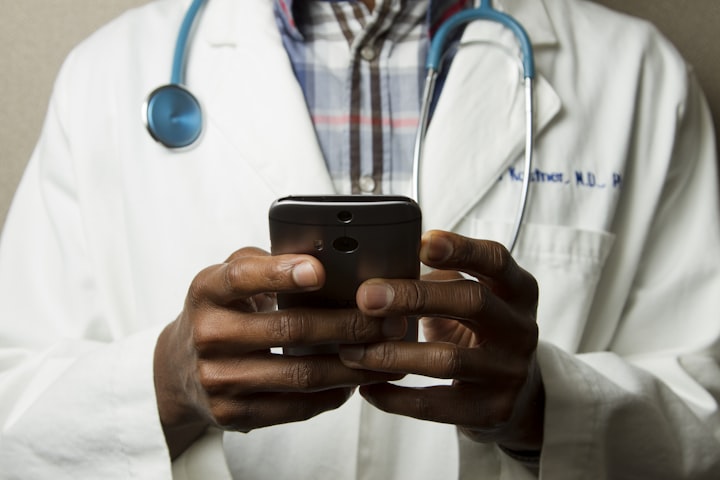The First Thing You Must Do Immediately After a Stroke
Read This Article To Learn More

The First Thing You Must Do Immediately After a Stroke
A stroke is a medical emergency that requires immediate attention. Every second counts when it comes to minimizing the damage caused by a stroke and maximizing the chances of recovery. If you or someone around you experiences symptoms of a stroke, it is crucial to take immediate action. In this article, we will discuss the first thing you must do immediately after a stroke to ensure the best possible outcome.
Table of Contents
Introduction
Recognizing the Signs of a Stroke
The Importance of Acting Fast
Call Emergency Services
Provide Necessary Information
Stay Calm and Supportive
Do Not Offer Food or Drink
Ensure a Clear Pathway
Do Not Drive to the Hospital
Conclusion
FAQs
What are the common signs of a stroke?
How long do I have to take action after a stroke?
Can I administer any first aid before emergency services arrive?
Should I try to give medication to the person having a stroke?
Can strokes be prevented?
Introduction
A stroke occurs when the blood supply to the brain is disrupted, either due to a blockage in the blood vessels (ischemic stroke) or bleeding in the brain (hemorrhagic stroke). Regardless of the type of stroke, prompt medical attention is crucial for minimizing brain damage and improving the chances of recovery.
Recognizing the Signs of a Stroke
Recognizing the signs of a stroke is essential for taking immediate action. Common symptoms include:
Sudden numbness or weakness in the face, arm, or leg, especially on one side of the body
Confusion or difficulty speaking or understanding speech
Trouble seeing in one or both eyes
Severe headache with no known cause
Difficulty walking, dizziness, or loss of balance and coordination
If you or someone around you experiences any of these symptoms, it is important to act quickly.
The Importance of Acting Fast
Time is of the essence when dealing with a stroke. The longer the brain is deprived of oxygen and nutrients, the more severe the damage can be. Acting fast can help preserve brain function and prevent long-term disabilities. Every minute matters, so immediate action is crucial.
Call Emergency Services
The first thing you must do immediately after recognizing the signs of a stroke is to call emergency services. In most countries, the emergency number is 911. Provide clear and concise information about the situation and mention that you suspect a stroke. The dispatcher will prioritize your call and send an ambulance to your location.
Provide Necessary Information
While on the call with emergency services, provide any necessary information that may assist the medical responders. This includes the patient's age, known medical conditions, and any medications they are currently taking. These details will help the medical team prepare appropriate care and treatment.
Stay Calm and Supportive
During a stroke, it is important to remain calm and provide support to the affected individual. Reassure them that help is on the way and that they are not alone. Offer words of encouragement and keep them as comfortable as possible.
Do Not Offer Food or Drink
It is crucial not to offer any food or drink to someone experiencing a stroke. Swallowing may be difficult, and providing food or drink can increase the risk of choking. It is best to wait for medical professionals to assess the situation and provide appropriate care.
Ensure a Clear Pathway
Clear the area around the person having a stroke to ensure a clear pathway for the medical responders. Remove any obstacles or hazards that may impede their access. This simple step can help expedite the arrival of medical help and ensure swift transportation to the hospital.
Do Not Drive to the Hospital
While it may be tempting to transport the stroke victim to the hospital yourself, it is not recommended. Emergency medical services are equipped with the necessary equipment and expertise to provide immediate and specialized care during transportation. Let the professionals handle the situation to ensure the best possible care.
Conclusion
Taking immediate action after recognizing the signs of a stroke is crucial for the well-being and recovery of the affected individual. Call emergency services, provide necessary information, stay calm and supportive, and ensure a clear pathway for the medical responders. By acting fast, you can make a significant difference in the outcome of a stroke.
FAQs
What are the common signs of a stroke?
Common signs of a stroke include sudden numbness or weakness, confusion or difficulty speaking, trouble seeing, severe headache, and difficulty walking or loss of balance.
How long do I have to take action after a stroke?
Time is critical after a stroke. Immediate action is crucial for maximizing the chances of recovery. Call emergency services as soon as possible.
Can I administer any first aid before emergency services arrive?
Unless you have specific medical training, it is best to wait for professional medical help. Focus on calling emergency services and providing support.
Should I try to give medication to the person having a stroke?
Do not give any medication unless specifically instructed to do so by medical professionals. Wait for emergency services to arrive and provide appropriate care.
Can strokes be prevented?
While not all strokes can be prevented, certain lifestyle modifications, such as maintaining a healthy diet, exercising regularly, managing blood pressure, and not smoking, can reduce the risk of stroke. Regular medical check-ups are also important for early detection and management of underlying conditions that may contribute to stroke risk.
About the Creator
Mehboob Ahmad
Mehboob Ahmad is a masterful writer, crafting captivating articles that inform and engage readers with their unique perspective and compelling storytelling.






Comments
There are no comments for this story
Be the first to respond and start the conversation.